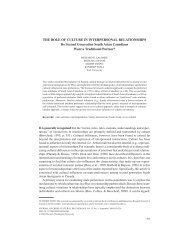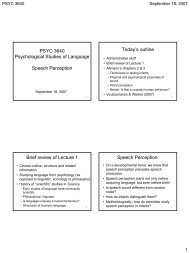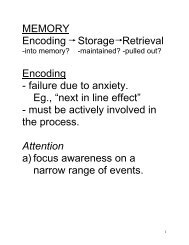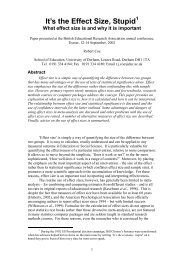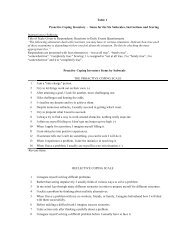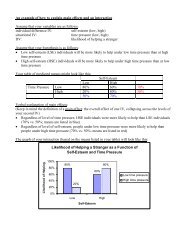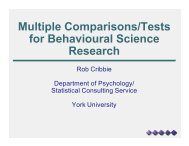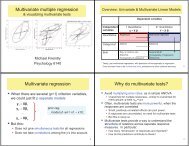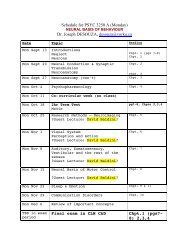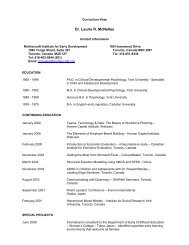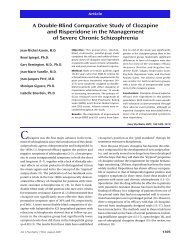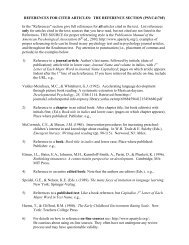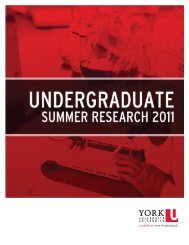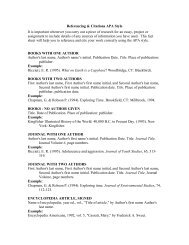The Drama of the Gifted Child (The Search for the True Self)
The Drama of the Gifted Child (The Search for the True Self)
The Drama of the Gifted Child (The Search for the True Self)
Create successful ePaper yourself
Turn your PDF publications into a flip-book with our unique Google optimized e-Paper software.
eloved fa<strong>the</strong>r's room so that he could have in his possession<br />
something that belonged to his fa<strong>the</strong>r. Guilt feelings,<br />
fear, and despair torment him in his loneliness and are replaced<br />
at last by <strong>the</strong> deepest humiliation and shame when<br />
his "wicked deed" is discovered. <strong>The</strong> strength <strong>of</strong> this portrayal<br />
leads us to surmise that it concerns a real episode<br />
from Hesse's own childhood. This surmise becomes certainty,<br />
thanks to a note made by his mo<strong>the</strong>r on November<br />
11, 1889: "Hermann's <strong>the</strong>ft <strong>of</strong> figs discovered."<br />
From <strong>the</strong> entries in his mo<strong>the</strong>r's diary and from <strong>the</strong> extensive<br />
exchange <strong>of</strong> letters between both parents and various<br />
members <strong>of</strong> <strong>the</strong> family, which have been available since<br />
1966, it is possible to guess at <strong>the</strong> small boy's painful path.<br />
Hesse, like so many gifted children, was so difficult <strong>for</strong> his<br />
parents to bear, not despite but because <strong>of</strong> his inner riches.<br />
Often a child's very gifts (his great intensity <strong>of</strong> feeling,<br />
depth <strong>of</strong> experience, curiosity, intelligence, quickness—and<br />
his ability to be critical) will confront his parents with<br />
conflicts that <strong>the</strong>y have long sought to keep at bay with<br />
rules and regulations. <strong>The</strong>se regulations must <strong>the</strong>n be rescued<br />
at <strong>the</strong> cost <strong>of</strong> <strong>the</strong> child's development. All this can<br />
lead to <strong>the</strong> apparently paradoxical situation when parents<br />
who are proud <strong>of</strong> <strong>the</strong>ir gifted child and who even admire<br />
him are <strong>for</strong>ced by <strong>the</strong>ir own distress to reject, suppress, or<br />
even destroy what is best, because truest, in that child. Two<br />
<strong>of</strong> Hesse's mo<strong>the</strong>r's observations may illustrate how this<br />
work <strong>of</strong> destruction can be combined with loving care:<br />
1. (1881): "Hermann is going to nursery school, his violent<br />
temperament causes us much distress." (1966, p. 10)<br />
<strong>The</strong> child was three years old.<br />
2. (1884): "Things are going better with Hermann, whose<br />
education causes us so much distress and trouble. From<br />
97



